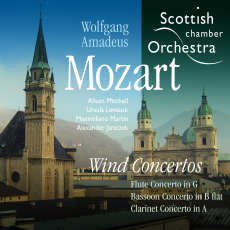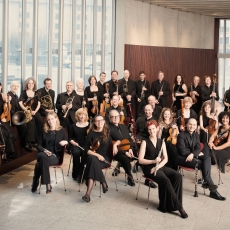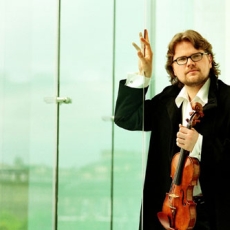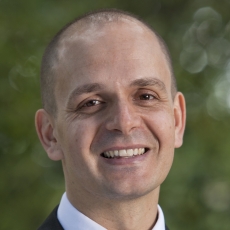Mozart Wind Concertos - SCO - Atlanta Audio Society
On an attractive Linn SACD, three principal wind players of the Scottish Chamber Orchestra get to show their stuff in a program of evergreen Mozart showpieces: the Flute Concert in G, K313, Bassoon Concerto in B-flat, K191, and Clarinet Concert in A, K622. They benefit from a well-supported string sound in the SCO under the baton of Alexander Janiczek.
The Flute Concerto has "charm" for its middle name. Soloist Alison Mitchell makes much of Mozart's florid writing, which includes some sensational runs and bird-song trills in the opening movement. The long-breathed Adagio of this work, surprisingly soulful in mood, gives the lie to the hoary legend that Wolfgang didn't like to write for the flute.
People tend to think of the bassoon as a prankster among the woodwinds, though no less a writer than E. M. Forster (if memory serves) once described it as "the most romantic of instruments." The slow movement of Mozart's concerto, the main theme of which strikes some as a hymn and others as a soulful operatic aria, is a perfect example of what the novelist meant. Soloist Ursula Leveux plumbs the depths and explores the full compass of her instrument in this Adagio. In the outer movements, she shows the lithesome facility with which it can scamper up and down scales.
Maximiliano Martin's performance of the Clarinet Concerto, justly the most famous work of this trio, is characterized by a very secure tone, unwavering in even the most difficult passages. The instrument's warm chalumeau register shows to good advantage here. The sublime beauty of the Adagio reveals its affinity to similar moods in its near neighbors in the "K" numbers, The Magic Flute and the Requiem.
All three concerto performances are affectionate and idiomatic. There is no dearth of competitive recordings of any of these works (The Muze lists no fewer than 91 of the clarinet concerto alone), so buyers may be influenced by the program, the superior Linn SACD sound, the consummate professionalism of the SCO, or all three.



